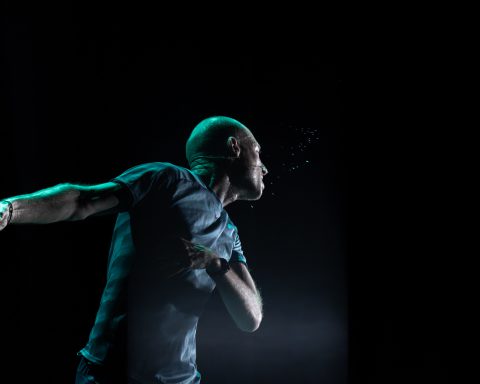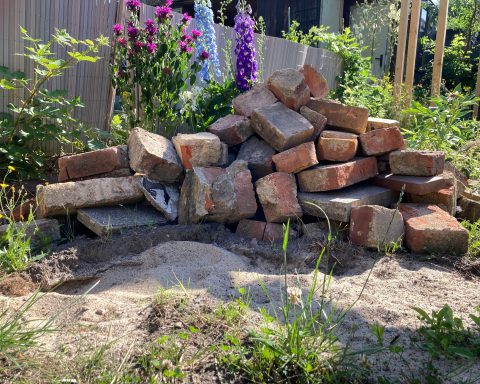We continue our series of articles on artists featured in this year’s MdbK VOIX exhibition, which brought together 28 female painters from the MalerinnenNetzwerk Berlin – Leipzig. For today’s article, guest writer and curator Clementine Butler-Gallie takes us to the studio of Franziska Güttler. This painter has a knack for creating work that addresses a variety of emotions all at once. No matter how dark or uncertain, there is always an element of hope.
(series curated by maeshelle west-davies)
In our content-saturated society, it is often hard to disconnect, and in turn, re-connect with our imagination. The paintings of Franziska Güttler are a rare opportunity to get released from reality and enter a world of fantastical freedom. Scenes are set with an array of characters: frolicking foxes, peacocks perched on a budding branch, crocodiles in conversation with coupled figures, as fish spring from the water at their feet.
Nature, animals and humans act together in a non-hierarchic collaboration.
The stage is set, but the procession of play is left enigmatic. This freedom of narrative invites us to shed societal restrictions. We are encouraged to look at the world with our own rules. According to Güttler, “the scenes can stagger between dystopian or utopian, the line is left unclear.”

In Güttler’s Leipzig studio, dappled by the evening sun, we sat down to delve further into her creative inspirations and the journey of her work. She tells me stories about growing up in Dresden during the GDR. She shares a picture of her as a young girl attending the peaceful demonstrations in 1989. We naturally move on to the post-reunification years that followed in the early ’90s. Says Güttler:
In my childhood memory, the land was immersed in a feeling of a timeless interruption and at the same time breathing in an air of freedom, of loss for the people leaving, heading westward, of uncertainty, danger and hope.
Hope has a strong eminence in Güttler’s scenes, as does the contrasting sensation of uncertainty. Whilst exploring the bright ink drawings on paper laid on the studio floor, one particular piece echoed this.
Franziska Güttler’s “Great Space” saves hope for tomorrow.
The work portrays an androgynous, forlorn figure sitting on a bench, a bike resting nearby as if they are taking a moment to contemplate. The surrounding scene fuses interior and exterior familiarities, offering a characteristic, ambiguous scape. Window panels framed with floating fabrics invite the deep night sky into the scene in “Great Space.”
Behind the figure, natural foliage bursts with explosive form and color. As the moon sits at a midpoint in the sky, hope is held in its anticipated descent into a new day. As Güttler tells me that all the ink drawings are an ongoing series, I wonder what the sequel to this particular frame could look like.

We continue to speak about Güttler’s creative journey. Her studies began in the fine painting and graphics class at the Academy of Fine Arts in Dresden, leading on to HGB Leipzig and then back to Dresden for her Masters.
East German art academies are known for their technical brilliance. This is something that is clearly deep-rooted in Güttler’s practice.
However, it is the inspirations Güttler has gathered outside of her studies that fascinate me more.
A cello sits in the studio. It gives a nod to the influence of music in her work, made apparent in the rhythmic brushstrokes and symphonic structure of her compositions. Fairytales, catalogs, political texts, comic books all stand on her bookshelf. Güttler explains she has been reading comics most of her life. This is evident in the narratives and figures that she creates.
These influences are firmly felt in her works, articulated through a variety of techniques. I’m curious whether she chooses the material or the subject first. Naturally, it is more complicated than that.
She tells me the ink drawings are for telling a story, whilst oils are for building something. Her lithographies and screen prints require more compositional experimentation. There she uses the material from her sketchbooks and drawings from video stills like a jigsaw.
I ask Güttler what technique she has always dreamed of trying. She is quick to answer stain glass window painting. It then became hard not to get a little lost in my own imagination, playing out the colors of her ink drawings on glass with the sun shining from behind.

After delving through the treasures of her studio and the stories that came with them, we got onto the topic of the MalerinnenNetzwerk. We spoke of the male-dominated tradition of the art scene. The network began as a meeting point for female painters. As the network grew, so did its recognition. The exhibition VOIX at the MdbK is a pinnacle point thus far.
Franziska Gütter’s selection of ink paintings and large canvas works in the show invited a corner of color to simultaneously dream and reflect within.
“The color for me opens a wide space of rhythm,” she said. “It is the connection to feeling, to dreams, utopia, solution, salvation…”
I left the studio feeling rejuvenated and hopeful. For this, I only have Güttler and her works to thank.

By Clementine Butler-Gallie
Clementine is an independent curator interested in historic and contemporary structures that empower cultural exchange. She is a British native that sees herself in a semi-permanent self-exile. She is currently planning to settle by a Saxon lake, but next year the dream may be entirely different.

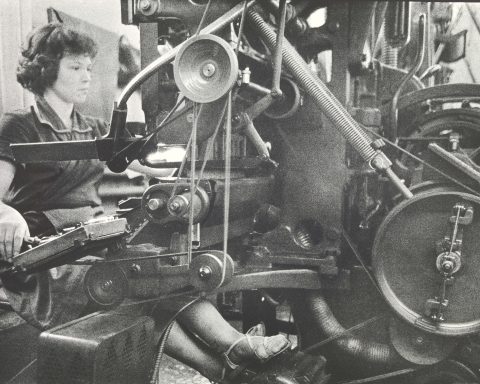
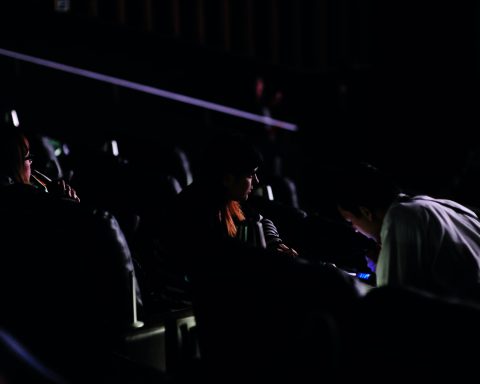
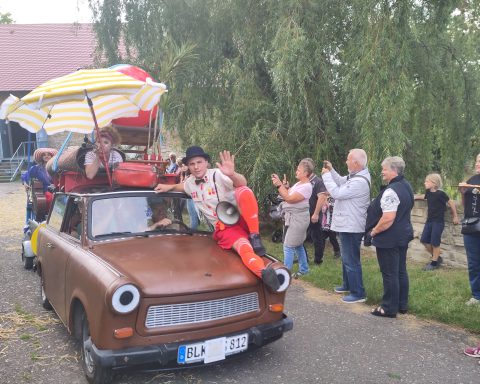
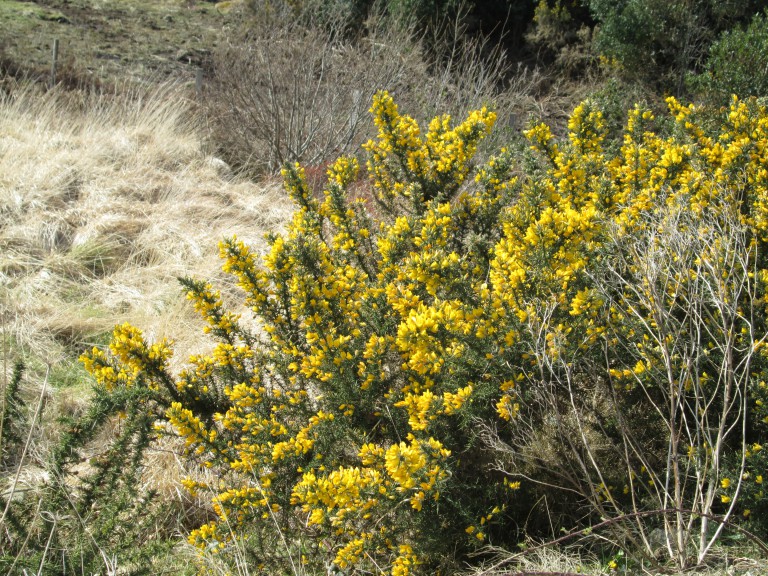
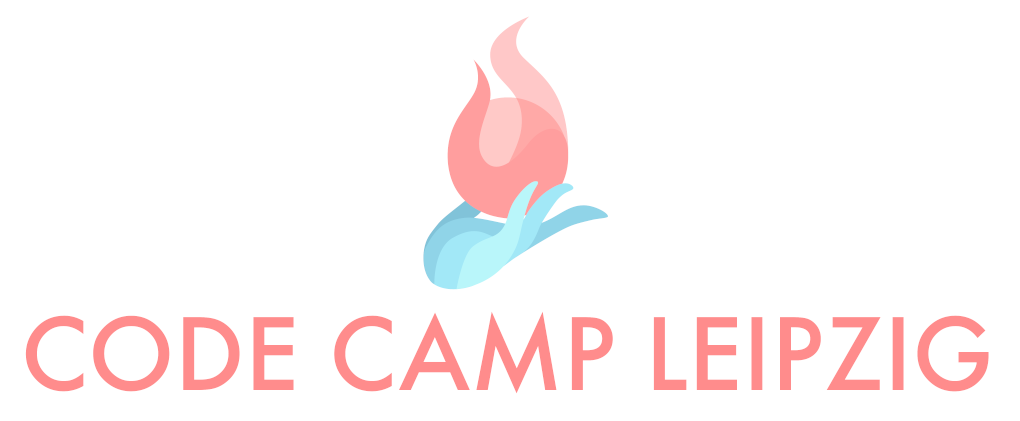

![Wine & Paint event on 9 Nov. 2024 at Felix Restaurant, Leipzig. Photo: Florian Reime (@reime.visuals] / Wine & Paint Leipzig](https://leipglo.com/wp-content/uploads/2024/12/pixelcut-export-e1733056018933-480x384.jpeg)
